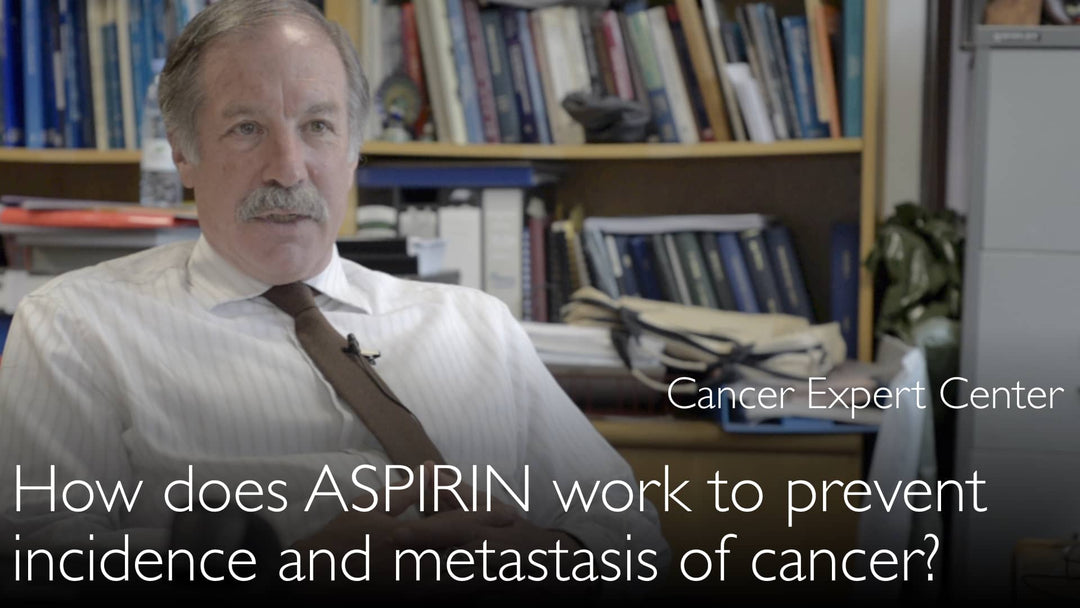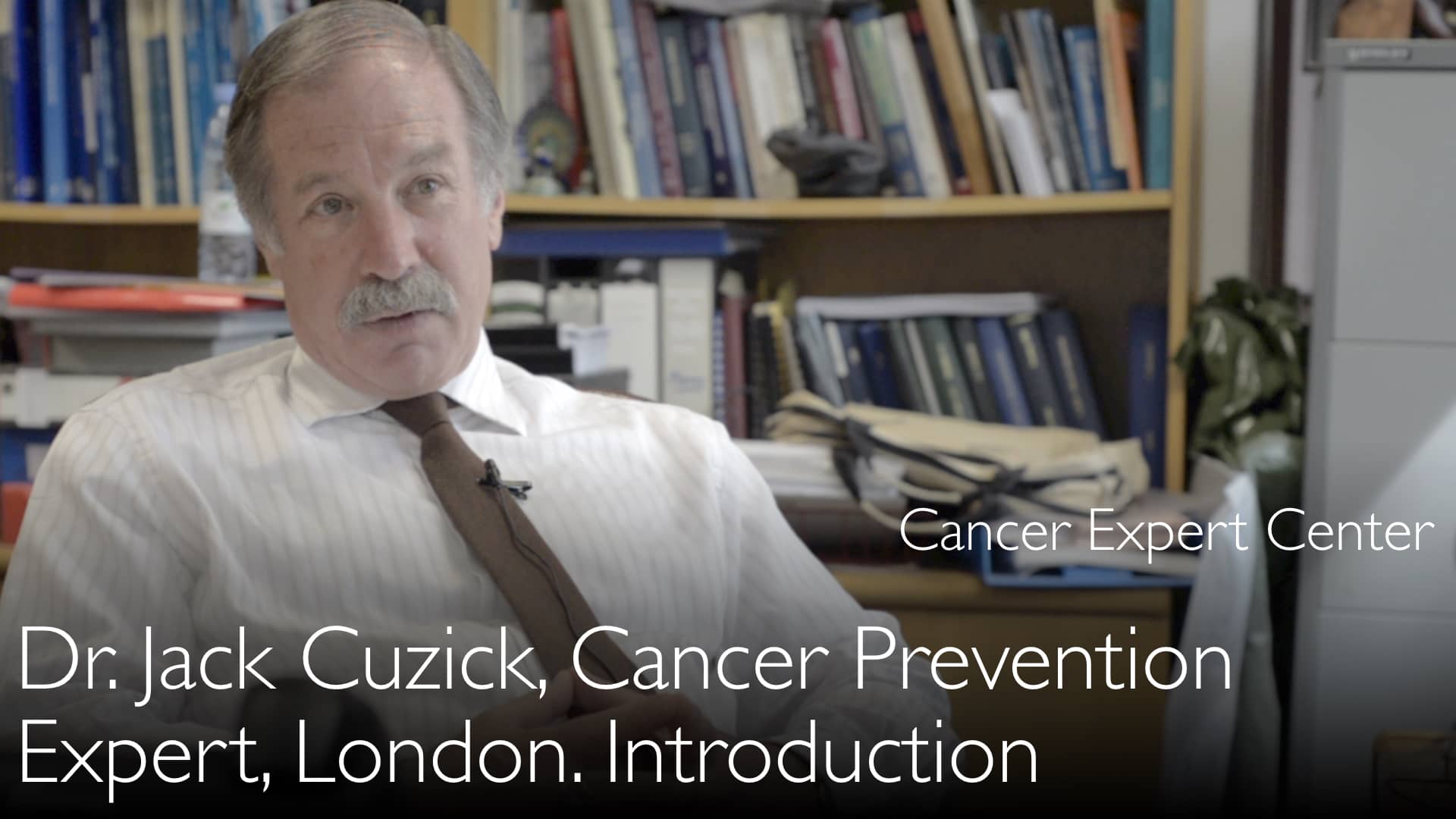מומחה מוביל במניעת סרטן, ד"ר ג'ק קוזיק, MD, מסביר את המנגנונים הכפולים של אספירין בהפחתת היארעות סרטן וגרורות, תוך הדגשת תפקידו המשמעותי בהורדת התמותה מסרטן המעי הגס, השד והערמונית דרך עיכוב טסיות ומסלולים מורכבים נוספים שעדיין אינם מובנים במלואם.
אספירין במניעת סרטן והפחתת גרורות: מנגנונים וראיות קליניות
קפיצה לפרק
- יתרונות אספירין במניעת סרטן
- מנגנון הדלקת ו-COX-2
- עיכוב הצטברות טסיות
- ליווי טסיות וגרורות
- ניסויים קליניים ונתוני תמותה
- השערת המנגנון הכפול
- כיווני מחקר עתידיים
יתרונות אספירין במניעת סרטן
ד"ר ג'ק קוזיק, MD, מאשר כי שימוש באספירין קשור להפחתה דרמטית בסיכון למספר סרטנים במערכת העיכול. הנתונים האמפיריים מראים כי צריכה סדירה של אספירין יכולה להוביל להפחתת סיכון של עד 30% בסרטן המעי הגס, סרטן הוושט וסרטן הקיבה. זה הופך את האספירין לתרופה חשובה מאוד בתחום הכימופרוונציה של סרטן.
מנגנון הדלקת ו-COX-2
דלקת היא גורם סיכון מוכר להתפתחות סרטן, ואספירין הוא חומר אנטי-דלקתי ידוע. ד"ר ג'ק קוזיק, MD, מסביר שמנגנון אנטי-דלקתי ראשוני כולל עיכוב של האנזים COX-2. עם זאת, השפעה זו דורשת מינון מינימלי גבוה של כ-600 מיליגרם אספירין ליום כדי לדכא ביעילות את ייצור COX-2. מכיוון שיתרונות מניעת הסרטן נראים במינונים נמוכים בהרבה, ד"ר קוזיק מסיק שעיכוב COX-2 אינו המנגנון העיקרי מאחורי ההשפעות האנטי-סרטניות של אספירין, מה שמצביע על צורך בהסבר מורכב יותר.
עיכוב הצטברות טסיות
היתרון העיקרי של אספירין במינון נמוך למחלות לב וכלי דם הוא יכולתו לעצור את הדבקות הטסיות זו לזו, תהליך הידוע כהצטברות טסיות. ד"ר ג'ק קוזיק, MD, מציין שיש דעה חזקה בקהילה המדעית שתכונה אנטי-טסית זו חיונית גם למניעת סרטן. אפילו מינונים נמוכים של אספירין יכולים להשפיע על COX-1 בתוך הטסיות, מה שעשוי לתרום להפחתת הדלקת, אם כי מסלול זה עדיין לא ברור או מובן במלואו.
ליווי טסיות וגרורות
מנגנון פוטנציאלית חשוב יותר לאספירין במינון נמוך כרוך בתפקידו במניעת גרורות סרטן. ד"ר קוזיק מתאר כיצד טסיות יכולות לשמש כלוות לתאים סרטניים במחזור הדם. הן עוטפות תאים סרטניים, ויוצרות "אוהלים" מגנים המסתירים אותם מגילוי על ידי מערכת החיסון, ובכך מאפשרות גרורות. על ידי עיכוב הצטברות הטסיות, אספירין מפריע לתהליך הליווי הזה. ד"ר ג'ק קוזיק, MD, מציע שתכונה אנטי-גרורתית זו עשויה להיות סיבה מרכזית לכך שאספירין מפחית תמותה מסרטן.
ניסויים קליניים ונתוני תמותה
ראיות קליניות חזקות תומכות בשימוש באספירין בחולים לאחר אבחנת סרטן. ד"ר ג'ק קוזיק, MD, מצטט ניסויים קליניים שמצאו הפחתה בשיעורי הישנות הסרטן, וחשוב יותר, הפחתה בתמותה בחולים המשתמשים באספירין. זה נצפה בסרטן המעי הגס ובסרטן השד, עם נתונים אפידמיולוגיים המראים בעקביות שההשפעה של אספירין על תמותה מסרטן היא בדרך כלל מעט גדולה יותר מהשפעתו על היארעות סרטן, מה שמחזק את השערת האנטי-גרורתיות.
השערת המנגנון הכפול
על בסיס הראיות הזמינות, ד"ר קוזיק מציע השערת מנגנון כפול לאופן פעולת האספירין נגד סרטן. הוא טוען שמנגנון אחד אחראי למניעת ההתפתחות הראשונית של סרטן, בעוד מנגנון שני, נפרד, מונע את התפשטות הסרטן והגרורות שלו שכבר התפתח. זה יסביר מדוע אספירין יעיל הן במניעה ראשונית והן בשיפור תוצאות ההישרדות לאחר האבחנה.
כיווני מחקר עתידיים
ד"ר ג'ק קוזיק, MD, מדגיש שהנתונים האמפיריים ליתרונות האספירין מקדימים בהרבה את ההבנה המנגנונית שלנו. הוא קובע שלא יהיה זה נבון לטעון שאנו מבינים במלואם כיצד אספירין מפחית סיכון ותמותה מסרטן. תחום זה מהווה מוקד מרכזי למחקר מדעי בסיסי עתידי, החיוני לייעול השימוש בו בפרקטיקה הקלינית ולפיתוח פוטנציאלי של טיפולים ממוקדים יותר המבוססים על מנגנוני הפעולה שלו.
תמלול מלא
ד"ר אנטון טיטוב, MD: מה ידוע על מנגנוני הפעולה של אספירין במניעת סרטן? כי רואים השפעות דרמטיות.
ד"ר ג'ק קוזיק, MD: אספירין עלול לגרום להפחתת סיכון של עד 30% בסרטן המעי הגס, סרטן הוושט וסרטן הקיבה. זה תחום שבו我们应该 לדעת הרבה יותר. השימוש באספירין למניעת סרטן חשוב מאוד. זה צריך להיות מוקד מרכזי אמיתי למדע בסיסי.
מסקנה זו מבוססת היטב. דלקת היא גורם סיכון מאוד ברור לסרטן. אספירין ימנע דלקת. אספירין מעכב את האנזים COX-2. אבל השפעה זו דורשת לפחות כ-600 מיליגרם אספירין ליום. זהו מינון אספירין לדיכוי ייצור COX-2. אז עיכוב COX-2 על ידי אספירין אינו המנגנון למניעת סרטן. אנחנו צריכים הסבר מורכב יותר.
ד"ר אנטון טיטוב, MD: אספירין במינון נמוך הראה primarily השפעה על הצטברות טסיות.
ד"ר ג'ק קוזיק, MD: אספירין עוצר את הדבקות הטסיות זו לזו. זהו יתרון ראשוני של אספירין למחלות לב וכלי דם. יש דעה שלהשפעה המונעת סרטן של אספירין יש קשר לטסיות.
יש כמה ניסויים קליניים המראים שאפילו מינונים נמוכים של אספירין יכולים להשפיע על COX-1 בטסיות. אספירין במינון נמוך יכול להפחית דלקת. אבל זה לא כל כך ברור. זה לא כל כך מובן.
המנגנון האחר אולי חשוב יותר לאופן שבו אספירין במינון נמוך מאט סרטן. זה חשוב יותר למניעת גרורות ותמותה. הוכח שטסיות מסוגלות ללוות תאים סרטניים. טסיות עוטפות תאים סרטניים בזרם הדם.
זה מוביל ליכולת של תאים סרטניים להימנע ממערכת החיסון. תאים סרטניים גרורתיים יכולים אז לנוע בגוף. זה גורם לגרורות. טסיות יוצרות אוהלים קטנים סביב התאים הסרטניים.
אבל אספירין עוצר את הדבקות הטסיות זו לזו. אספירין מעכב את התכונה הזו של טסיות להדבק. אז זו יכולה להיות הסבר. אבל זה עשוי להיות חשוב יותר לתכונה האנטי-גרורתית של אספירין.
מניעת הצטברות טסיות עשויה להיות פחות חשובה להפחתת היארעות סרטן על ידי אספירין. אז יש לנו הרבה ללמוד שם. אני חושב שלא יהיה נבון לומר שאנחנו מבינים את המנגנון. איך אספירין מפחית סרטן.
זה תחום שבו הנתונים האמפיריים מקדימים בהרבה את ההבנה המנגנונית.
ד"ר אנטון טיטוב, MD: זה גם מעניין. אתה מזכיר שאספירין עשוי למנוע את הפוטנציאל הגרורתי של תאים סרטניים. יש some נתונים בסרטן הערמונית לתפקיד אספירין במניעה.
אספירין מפחית תמותה מסרטן המעי הגס לאחר אבחנת הסרטן. אספירין מפחית את שיעור התמותה בסרטן השד. יש מספר ניסויים קליניים שבדקו את השימוש באספירין בחולים שכבר יש להם סרטן. הם מצאו הפחתה בשיעורי הישנות הסרטן.
ד"ר ג'ק קוזיק, MD: ניסויים קליניים מצאו הפחתה בתמותה אם חולים השתמשו באספירין לאחר אבחנת סרטן. אז יש evidence לכך. יש also the ראיות עקיפות מכל הניסויים הקליניים האפידמיולוגיים.
ההשפעה של אספירין על תמותה מסרטן היא typically מעט גדולה יותר מההשפעה על היארעות סרטן.
ד"ר אנטון טיטוב, MD: אז הכל מסתדר. זה משהו די אמיתי. אולי אספירין helps להפחית את הפוטנציאל הגרורתי והאגרסיביות של תאים סרטניים.
ד"ר ג'ק קוזיק, MD: זה נכון. הניחוש שלי הוא שיש לפחות שני מנגנונים. יש מנגנון אחד how אספירין מונע את התפתחות הסרטן. יש also a מנגנון שני. אנחנו לא מבינים את זה well. מנגנון נוסף זה of אספירין מונע את התפשטות הסרטן that has actually developed.





